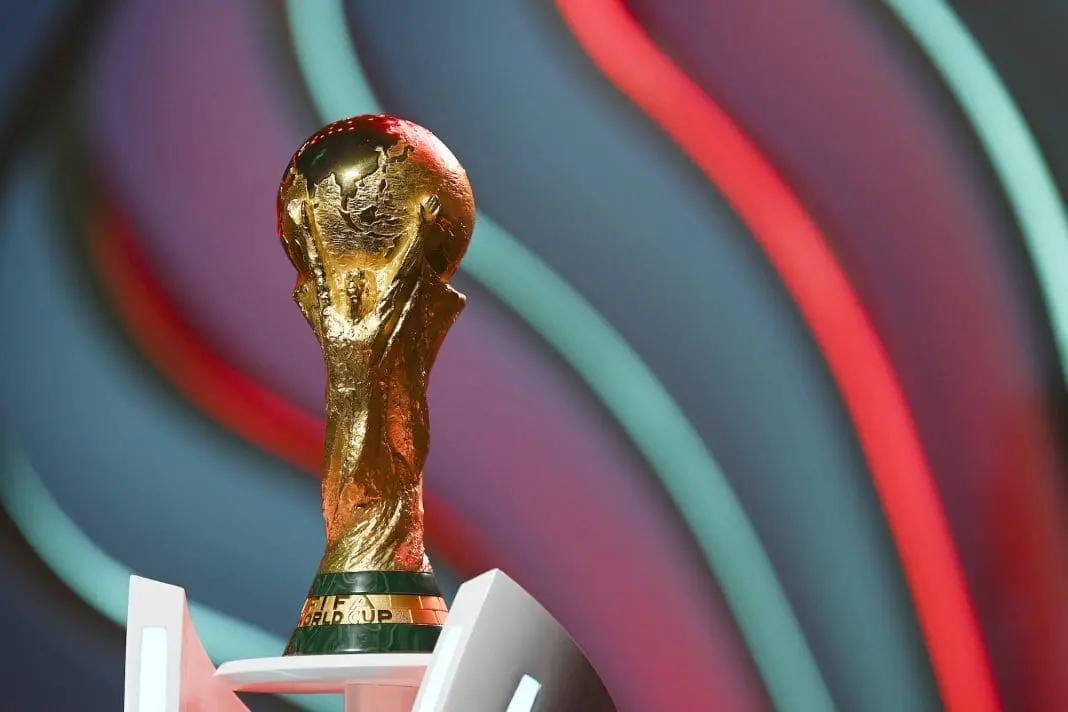Africa-Press – Eswatini. African football enters the decisive phase of 2026 World Cup qualification with Morocco and Tunisia already securing their places, while Ghana, Egypt, Algeria, and several other nations battle for remaining spots in the expanded tournament across North America.
The 2026 World Cup represents Africa’s best qualification opportunity in tournament history, with nine direct spots available compared to the five traditionally allocated to CAF. An additional inter-confederation playoff slot provides a tenth potential pathway, fundamentally changing qualification dynamics across the continent.
Morocco and Tunisia have become the first African nations to confirm their participation, booking their places through dominant group stage performances. Morocco, who captivated the 2022 World Cup by reaching the semifinals, continued their momentum by securing qualification ahead of schedule. Tunisia joins them, marking their third consecutive World Cup appearance and demonstrating sustained competitive standards despite regional challenges.
Ghana sits atop Group I with 19 points from seven matches, having won six, drawn one, and lost one. The Black Stars’ recent 1-0 victory over Mali strengthened their qualification prospects, with Alexander Djiku’s 49th-minute strike proving decisive. However, a dramatic 1-1 draw against Chad in September, where the Chadian team scored in the match’s final moments, prevented Ghana from sealing qualification outright and extended the uncertainty by another matchday.
Egypt, led by Mohamed Salah, remains in strong contention despite not yet mathematically securing qualification. The Pharaohs’ campaign has showcased the attacking prowess that makes them perennial African powers, though they face pressure to convert favorable positioning into confirmed World Cup participation before the qualification window closes.
Algeria similarly occupies a commanding position in their group, consolidating their lead through consistent performances that reflect their technical quality and tactical discipline. The Desert Foxes aim to return to the World Cup stage after disappointing early exits in recent tournaments, viewing 2026 as opportunity to reclaim their status among Africa’s elite.
Cape Verde represents one of the qualification campaign’s compelling narratives. The island nation, with a population under 600,000, has consistently punched above their weight in African football. Their qualification pursuit demonstrates how smaller nations can compete when organization, commitment, and tactical intelligence compensate for limited player pools and resources.
South Africa took command in Group C following pivotal results that reshaped qualification dynamics. Bafana Bafana’s resurgence comes after years of underachievement relative to their infrastructure and talent base, suggesting renewed focus on national team success.
Nigeria, traditionally among Africa’s strongest football nations, faces unexpectedly difficult qualification scenarios in Group C. The Super Eagles’ struggles highlight how expanded World Cup spots don’t guarantee passage for historically dominant teams when contemporary competition intensifies across the continent.
The qualification format, introduced by CAF’s Executive Committee in May 2023, divided teams into nine groups of six. Group winners qualify directly for the World Cup, while the four best group runners-up advance to a playoff round determining the final direct qualifier and the inter-confederation playoff participant.
This structure creates tension throughout qualification campaigns. Teams leading groups cannot relax, knowing that single poor results can jeopardize direct qualification and force playoff routes with uncertain outcomes. Runners-up face anxious calculations about whether their point totals will rank among the four best across all groups.
The expanded World Cup format, with 48 teams instead of 32, reflects FIFA’s strategy to globalize the tournament and increase participation from confederations historically underrepresented. For Africa, this means nearly doubling World Cup representation, providing pathways for nations that previously faced near-impossible qualification odds.
Whether increased African participation enhances tournament quality or dilutes competitive standards remains debated. Advocates argue that more African teams gain invaluable experience while generating economic and social benefits for participating nations. Critics suggest that weaker teams reaching the World Cup diminish the tournament’s prestige and competitive intensity.
Ghana’s qualification pursuit carries particular significance given their historical World Cup performances. The Black Stars reached quarterfinals in 2010, coming agonizingly close to becoming the first African semifinalist before Luis Suarez’s infamous handball and penalty miss. Their 2006 and 2014 appearances established expectations that subsequent failures to qualify damaged.
Coach Otto Addo assembled squads featuring Premier League regulars Thomas Partey, Mohammed Kudus, Jordan Ayew, Antoine Semenyo, and Inaki Williams, reflecting Ghana’s talent pool distributed across Europe’s top leagues. Converting individual quality into collective success remains the perpetual challenge for African national teams whose players rarely train together outside international windows.
The final qualification matches, scheduled for completion before year’s end, will determine which African nations join Morocco and Tunisia in North America. For Ghana, Egypt, Algeria, and others leading their groups, the pressure intensifies to convert favorable positions into confirmed participation before unexpected results create complications.
African football’s competitive balance continues evolving, with traditional powers no longer guaranteed passage while emerging nations exploit organizational improvements and tactical sophistication to challenge established hierarchies. The 2026 qualification campaign exemplifies these shifting dynamics, where historical reputation provides diminishing advantages against contemporary preparation and execution.
For More News And Analysis About Eswatini Follow Africa-Press







